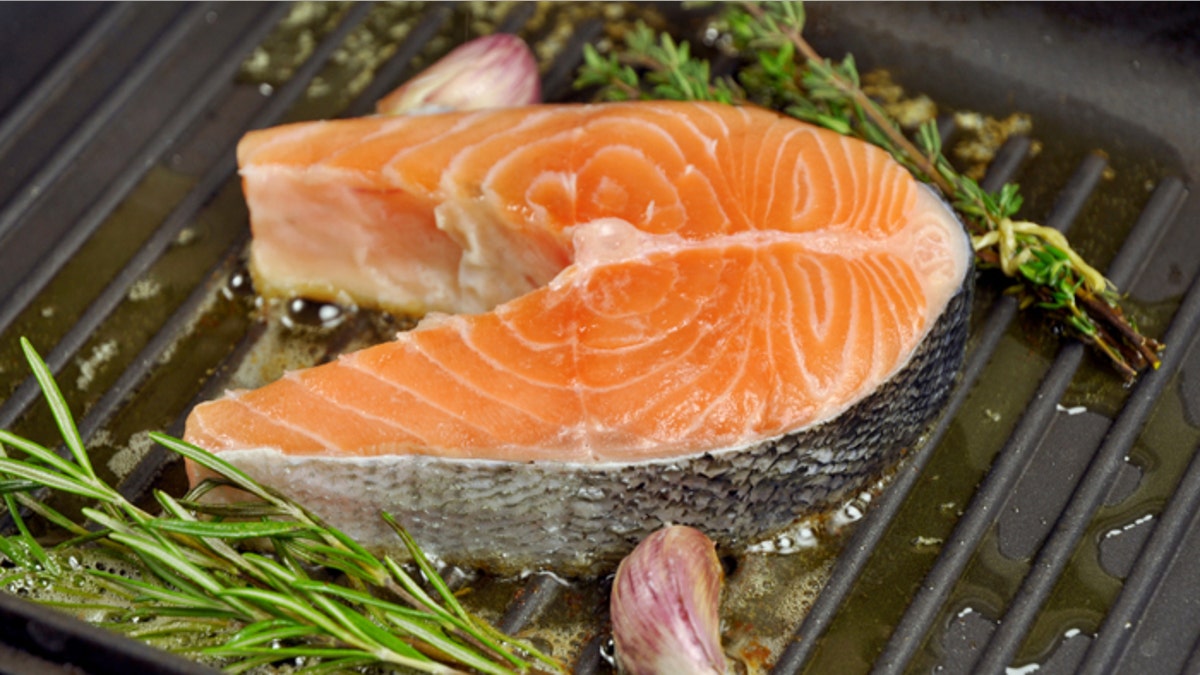
Salmon steak being fried in a pan with rosemary,thyme and garlic (© Ina Peters)
Up to 42 percent of people who take antidepressants find the medication ineffective, but a new study suggests that a simple diet change may trigger a response, Medical News Today reported.
In the research, published in the journal European Neuropsychopharmacology, scientists discovered a link between a diet rich in fatty fish and reported efficacy of selective serotonin reuptake inhibitor (SSRI) antidepressants.
“We were looking for biological alterations that could explain depression and antidepressant non-response, so we combined two apparently unrelated measures: metabolism of fatty acids and stress hormone regulation,” lead researcher Roel Mocking said. “Interestingly, we saw that depressed patients had an altered metabolism of fatty acids, and that this changed metabolism was regulated in a different way by stress hormones.”
According to the Centers for Disease Control and Prevention (CDC), an estimated one in 10 U.S. adults report depression. Women and people between the ages of 45 and 64 years of age are the most at risk.
Throughout the trial, scientists studied levels of the stress hormone cortisol and fatty acids in 70 patients with depression. They compared them with readings taken from 51 healthy controls.
Patients with depression were given a 20 mg dose of an SSRI every day for six weeks. Those who didn't respond to the drugs were given a gradually increased dose of up to 50 mg per day.
Researchers reported that participants who ate fatty fish at least once a week had a 75 percent chance of responding to the antidepressants, while participants who never ate fatty fish had only a 23 percent chance of responding to them.
"Importantly, this association was associated with eating fatty fish, which is an important dietary source of omega-3 fatty acids,” Mocking said. “These findings suggest that measures of fatty acid metabolism, and their association with stress hormone regulation, might be of use in the clinic as an early indicator of future antidepressant response. Moreover, fatty acid metabolism could be influenced by eating fish, which may be a way to improve antidepressant response rates."
Mocking pointed out that it’s unclear whether the link between fatty acids and blood and antidepressant response is a causal effect at this stage. Next, researchers will examine whether alterations of fatty acid metabolism and stress hormone activity also apply to conditions such as post-traumatic stress disorder (PTSD) and schizophrenia.
